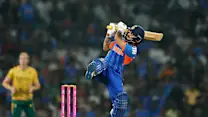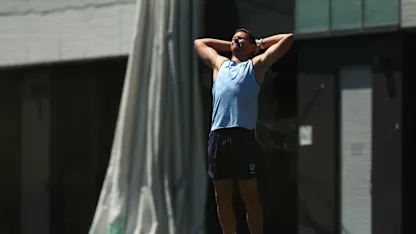News

ICC Men's T20 World Cup, 2026
Commentators confirmed for ICC Men's T20 World Cup 2026

ICC Men's T20 World Cup, 2026
Group D Preview: Three high-ranked teams battle at T20WC

ICC Under-19 Cricket World Cup, 2026
One game to go: India, England eye U19 World Cup glory

ICC Men's T20 World Cup, 2026
Men’s T20 World Cup 2026 Warm-Up: Day 4 Wrap

ICC Men's T20 World Cup, 2026
All the Broadcast details for ICC Men’s T20 World Cup 2026
Editor's Picks
ICC World Test Championship
Anderson weighs in on England's tactics at the AshesICC Women's Emerging Nations Trophy, 2025
ICC Women’s Emerging Nations Trophy Day 5 wrapICC World Test Championship
Bavuma in awe of South Africa's 'massive' feat in IndiaICC World Test Championship
ICC World Test Championship 2025-27: State of Play
